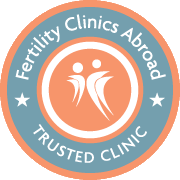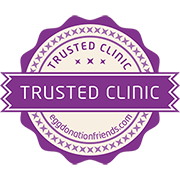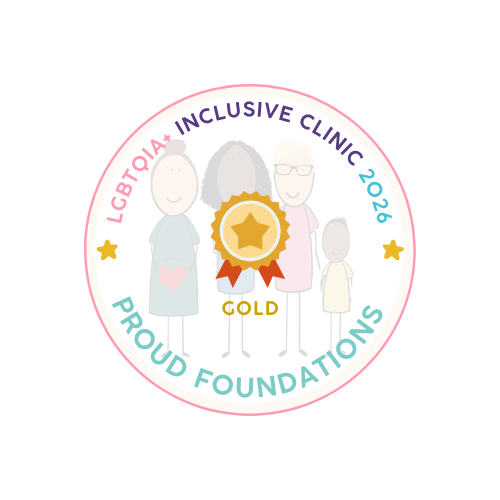The COVID vaccine is here: Should IVF patients get vaccinated? (Updated: 07/01/2022)
by Ermina Konstantinidou, last updated 07 Jan 2022,
6 min read
Should women undergoing IVF treatment be vaccinated?
The general consensus these days seems to be that women planning to conceive or already pregnant should be vaccinated against Covid-19, as potential complications if SARS – CoV – 2 is contracted during pregnancy may be significant and the benefit of vaccination outweighs the risk of potential side effects.
Moreover, women who are pregnant, breastfeeding, trying to get pregnant now, or might become pregnant in the future, should get a booster shot.
Most of the available data are based on observations following vaccinations with the mRNA vaccines (Pfizer-BioNTech or Moderna), since they were released first. This is the reason many authorities seem to favor the specific types of vaccines.
What ESHRE says:
The European Society of Human Reproduction and Embryology (ESHRE) states that:
- For women and men attempting conception, it is advisable to perform the vaccine before starting treatment.
- Women and men that have received the vaccine it is advisable to postpone treatment for at least a few days so that they can have enough time to have an immune response from the vaccine.
- For pregnant women vaccination should be performed after evaluating the risk and the benefits of performing the vaccine.
One needs to highlight that ESHRE data are a bit outdated since the review was made in June 2021.
What CDC says:
A more recent review of the Centers for Disease Control and Prevention (CDC) in December 2021 states that COVID-19 vaccination is recommended for people who are pregnant, breastfeeding, trying to get pregnant now, or might become pregnant in the future. Moreover, everyone who ages 18 and older, including those who are pregnant, breastfeeding, trying to get pregnant now, or might become pregnant in the future, should get a booster shot.
Evidence about the safety and effectiveness of COVID-19 vaccination during pregnancy, although limited, has been growing. It suggests that the benefits of receiving a COVID-19 vaccine outweigh any known or potential risks of vaccination during pregnancy. Below is a brief summary of the growing evidence:
- COVID-19 vaccines do not cause COVID-19 infection, including in people who are pregnant or their babies.
- Early data on the safety of receiving an mRNA COVID-19 vaccine (Moderna or Pfizer-BioNTech) during pregnancy are reassuring.
- Early data suggest receiving an mRNA COVID-19 vaccine during pregnancy reduces the risk for infection.
- Vaccination during pregnancy builds antibodies that might protect the baby.
- No safety concerns were found in animal studies.
- No adverse pregnancy-related outcomes occurred in previous clinical trials that used the same vaccine platform as the J&J/Janssen COVID-19 vaccine.
Regarding people that are trying to conceive, CDC states that there is no need to postpone vaccination as there is no evidence of the vaccine causing fertility issues. Also, there is no need to avoid pregnancy after being vaccinated. The above are the reasons why routine pregnancy testing is not recommended before proceeding with vaccination.
There has been no link between vaccination and fertility issues in women and men.
Patients who decide to proceed with the vaccination should still follow the imposed guidelines for COVID prevention.
The CDC recommends individuals that get vaccinated to enroll in v-safe which is a smartphone based tool that provides personalized health check-ins after receiving the vaccine. Pregnant women can enroll on the v-safe pregnancy registry.
What JCVI (UK) and RCOG says:
The Joint Committee on Vaccination and Immunisation (JCVI) and the Royal College of Obstetricians and Gynaecologists (RCOG), published in December 2021 respectively, both agree that "with the new variant (Omicron) in circulation, we strongly encourage pregnant women to have their first and second doses of the COVID-19 vaccine if they have not already done so, to protect themselves and their baby".
Women trying to become pregnant do not need to avoid pregnancy after vaccination and there is no evidence to suggest that COVID-19 vaccines will affect fertility.
Lastly, all adults including pregnant women are urged to book a COVID-19 booster vaccine (third dose) three months after their second dose.
Basically, there is a unanimous agreement with the CDC’s views and guidelines for the above-mentioned population when it comes to receiving the vaccine and following the current national guidance on safety measures for COVID-19.
What ACOG says:
The American College of Obstetricians and Gynecologists (ACOG) (December 2021) has a similar approach to JCVI and CDC stating that pregnant women should have access to the vaccines. Vaccination should also not be withheld from lactating women or individuals planning a pregnancy.
ACOG recommends the use of a booster dose in pregnant and nonpregnant individuals for mRNA and Johnson & Johnson’s Janssen (J&J/Janssen) vaccines in people aged 18 years and older.
Based on US CDC data, as of September 2021,
- About 31% of pregnant women in the US have been vaccinated against COVID-19.
- Symptomatic COVID-19 positive women during pregnancy have a 70% higher risk of mortality compared to the general population.
- Women who are pregnant or who are planning a pregnancy is advisable to get vaccinated with any of the available vaccines. Vaccination significantly decreases the chances of developing a severe COVID-19 infection.
- The so far available data show that they are safe to be performed while planning for a pregnancy, at any stage of pregnancy and during breastfeeding.
- Vaccination does not increase miscarriage rates.
- Women who are fully vaccinated should receive a booster shot at the recommended time after receiving their second dose of vaccine regardless of whether they are planning for a pregnancy, are pregnant or breastfeeding.
What NACI (Canada) says:
The National Advisory Committee on Immunization (NACI) (October 2021) of Canada does now suggest vaccination during pregnancy and breastfeeding as newly available data show that vaccination is deemed safe for the above-mentioned populations.
If a pregnancy is achieved during the vaccination series, then completion should not be delayed unless there are risk factors suggesting otherwise.
What the NPHO (Greece) says:
Τhe National Public Health Organization of Greece (available information in Greek) follows CDC’S and ACOG’s approach and states that routine vaccination on women that a planning to achieve a pregnancy, are pregnant or lactating, is advisable and safe.
What should you do?
Although, all the above information may seem confusing and daunting, the best approach is to follow your home-country’s guidelines along with your doctor’s recommendations.
As a clinic, we will be following an individualized approach always taking into consideration your medical history and current imposed guidelines. As always, we will try our best to be at your side and ensure that you will be able to achieve your dream safely.
For more questions please do not hesitate to contact our medical team, here.

Ermina Konstantinidou, BSc, MSc
Ermina is a Midwife and an International Patient Coordinator at Newlife IVF Greece.











